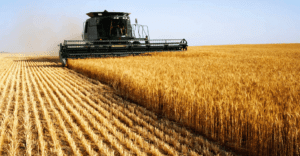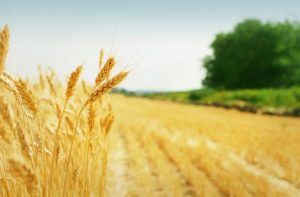
The state budget for 2025 envisages more than 5 billion UAH for the agricultural sector, Minister of Agrarian Policy and Food Vitaliy Koval said in Telegram. According to the report, 4.726 billion will be allocated for payments per hectare and for the maintenance of cows, sheep and goats.
In addition, UAH 200 million are planned for the restoration and construction of land reclamation systems, UAH 5 million for compensation of ERUs to family farms and UAH 80 million for the provision of favorable interest-free loans to farms.
The state budget envisages 1.37 billion UAH for grants, including for orchards and greenhouses, and 1 billion UAH for demining of agricultural land, the minister explained.

Germany will support Ukraine’s agricultural sector by the end of this year providing EUR 9 million to buy generators and help restore war-affected farms, while the countries are coordinating a joint EUR 5 million project to develop Ukrainian horticulture.
According to the website of the Ministry of Agrarian Policy and Food on Friday, the German Minister of Agriculture Cem Ozdemir and the head of the Ukrainian Ministry of Agriculture Mykola Solskyi have agreed on the financial aid.
According to the department, Solskyy said that the project is very relevant to Ukraine on the background of the government program, which provides an opportunity to receive a grant for the development of their own horticulture, berry growing and viticulture, and which enjoys great popularity among farmers. Thus, during the five months since its launch grants for more than 240 million UAH have been agreed upon.
In addition, the ministers discussed enhancing cooperation on the Grain from Ukraine food initiative, within the framework of which the United States through its Agency for International Development (USAID) will provide up to $20 million. Solskyy also thanked Germany for being one of the first countries that joined this humanitarian program and funded the transportation of a shipload of grain from Ukraine to Ethiopia.
“Many countries have indicated that they are willing to participate in this program. This is important because of several aspects. First, it is right from the point of view of humanitarian relations in the world. Secondly, Africa needs to know who really cares about it, and because of the actions of which country they are suffering. We are working to make sure that the grain corridor continues to work as long as possible so that we can get our food to where it is needed all the time. And, of course, we will be grateful for the continued support of our partners,” the Ministry of Agrarian Policy quoted Solskyi as saying.

The Ukrainian Chambers of Commerce and Industry and export organizations assess the opportunities for the export of Ukrainian products on a 10-point scale at 7.5, and note the need for state support for export activities, which should provide for financial, legal, communication and infrastructure direction.
According to the research “Analysis of institutional support for exports among organizations of the agrarian sector of Ukraine” of the Agritrade Ukraine project, the text of which is available to the Interfax-Ukraine agency, the average assessment of the opportunities for the export of Ukrainian products on a 10-point scale (where one is very poor opportunities, while ten is very good) by participants in the study was 7.5.
Among the main factors of such an assessment were named a high existing demand abroad, good qualifications and experience of industry employees, favorable agro-climatic conditions.
At the same time, the participants in the research noted that the implementation of the export potential is impossible in full due to a saturated competitive environment, insufficient level of harmonization of production and processing standards, the complexity and lack of information about the features of certification and the inertia of some domestic farmers.
More than three quarters of the organizations (77%) that that took part in the survey noted that they have established cooperation with companies from the EU countries. Among the main problems that arise in this process and become obstacles to cooperation, they named a small amount of quotas for certain types of agricultural products, non-compliance with quality standards and certification standards, a saturated competitive environment.
Assessing the compliance of domestic agricultural products and food products with European quality standards, almost three quarters of the respondents (72%) noted that they were more likely to comply, 12% of the survey participants were sure of absolute compliance.
Approximately one fifth of the organizations (22%) that took part in the survey can fully satisfy the requests of Ukrainian companies to establish trade relations with foreign companies and companies from the EU countries (that is, 90-100% of requests).
Among the main factors that affect the ability to satisfy the requests of Ukrainian companies to establish trade relations with foreign companies and companies from the EU countries, the survey participants most often named a lack of practical experience of employees, a lack of knowledge of business English and export-import legal framework, a limited access to market information (supply-demand), lack of analytical skills and tools, the volume of quotas for the export of certain types of agricultural products, limited and insufficient advertising and marketing budgets.